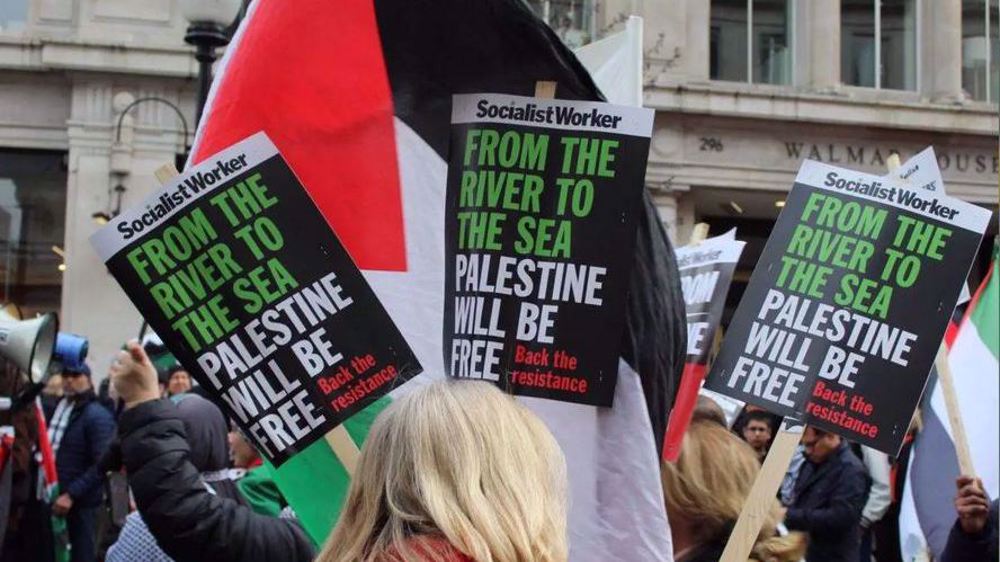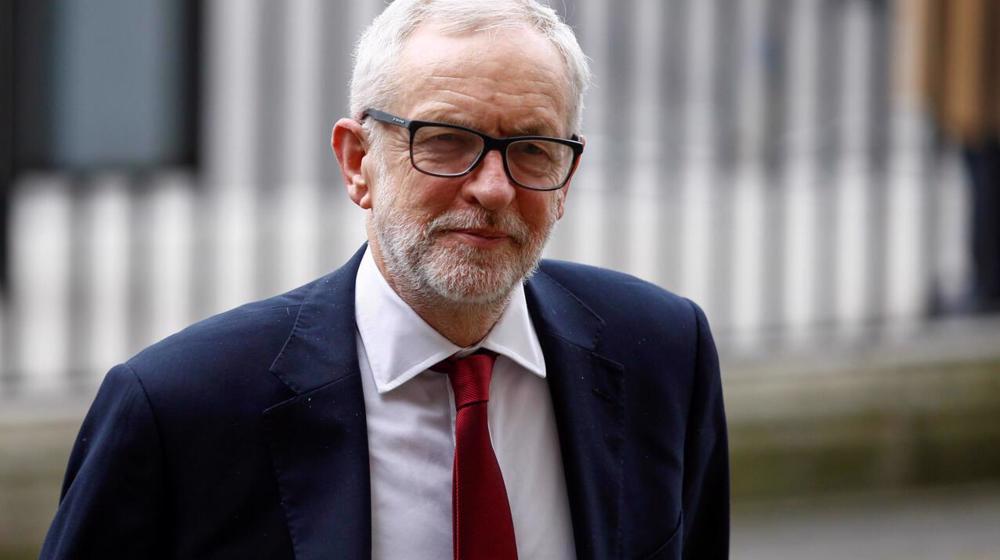Oil tanker attacks: Britain reverts to type
To date the UK is the only major diplomatic power to support the American accusations. As the British opposition Labour party, in addition to independent British political observers, have noted, this begs the question as to why Britain is staking out such an extreme position at the risk of international isolation.
On the face of it, Britain has hardened its attitude toward Iran in recent months by taking a number of unfriendly steps. Foremost, Britain has granted more freedom of action to the anti-Iran terrorist group Mojahedin-e-Khalq (MeK) to operate with greater latitude within the corridors of power both in the UK and in the European Union.
More broadly, the UK has taken additional steps to appease both the Saudi and Israeli lobbies. Britain’s intensifying support for the Saudi-led war on Yemen and hostile moves against anti-Zionist movements – notably the Lebanese resistance Hezbollah – must be seen in this light.
So is London’s alignment with the US on the tankers’ incident part of a broader policy of incrementally sabotaging relations with Tehran, or are there more concealed motives at play?
As observed by the leadership of the British opposition, on this issue – like others – the main factor is less Britain’s national interest and national security than the personal interests and ambitions of key conservative party figures.
Take for example Defence Minister Tobias Ellwood, who raised tensions both in terms of Britain’s bilateral relations with Iran and in the context of unfolding events in the Persian Gulf, by warning Iran on taking action against British interests in the region.
This warning is superfluous as to date Iran has not undertaken any action against British interests, either by word or deed.
A former army officer and a member of parliament for Bournemouth East, Ellwood’s close business and personal links to Saudi Arabia have been widely reported by the media. In his previous role as parliamentary under-secretary of state for foreign and commonwealth affairs, Elwood frequently fronted as an apologist for Saudi Arabia’s dismal human rights record.
But the central figure in this saga is Jeremy Hunt who has claimed he is “almost certain” Iran was behind the attack on the tankers. In the absence of hard evidence as to who was really behind the attacks, what could be driving the foreign secretary to make such a bold and evidently unsubstantiated allegation?
To that end, it is worthwhile examining Hunt’s deeper motives for his latest outburst on Iran. The foreign secretary is currently contesting the conservative party leadership where he has emerged as the strongest rival to leading contender Boris Johnson.
By staking out a tough position on international affairs, and particularly in respect of suspicious events unfolding in the Persian Gulf, Hunt hopes to boost his credentials both within the conservative parliamentary party and amongst the Tory rank and file.
It is worthwhile remembering that Hunt’s predecessor as head of the FCO was none other than Boris Jonson, the leading candidate to become Britain’s next prime minister. Fortunately for Hunt, Johnson’s performance as foreign secretary was widely judged to have been abysmal, and in some cases inimical to British national security.
Johnson’s biggest gaffe came in November 2017 when in a rare moment of honesty he appeared to allude to Nazanin Zaghari-Ratcliffe’s role in fomenting illegal activities in Iran. This ‘unintended confession’ was a major departure from the British government’s oft-stated position that Zaghari-Ratcliffe was merely visiting her family in Iran when she was arrested in April 2006.
Since becoming foreign secretary in July 2018 Hunt has taken a strong interest in Zaghari-Ratcliffe’s case and forged close ties to her husband Richard Ratcliffe. According to well-informed sources Hunt met Ratcliffe prior to his decision to launch a hunger strike apparently in solidarity with his incarcerated wife.
Hunt’s proximity to Ratcliffe illustrates the extent to which Zaghari-Ratcliffe’s plight has been politicised to suit the personal ambitions of leading Conservative politicians. By appearing to support Zaghari-Ratcliffe, Hunt hopes to undermine the leadership credentials of Boris Johnson.
The personalisation of British foreign policy speaks volumes about muddled thinking in London and by extension Britain’s inexorable loss of influence on the world stage.
Instead of reflexively blaming Iran for regional tensions, the British establishment could do better by placing policy making on a more stable and rational footing.
'Gaza has won': Social media users react to ceasefire with mix of relief, joy
Iran seeks South Korea’s assistance for AI, fiber-optic projects
VIDEO | Iran's 'Eqtedar' (Power) maneuver
Israel hits HTS military target in Syria for 1st time since fall of Assad
VIDEO | Press TV's news headlines
Israel has slaughtered 13,000 students in Gaza, West Bank
VIDEO | More Zionist than Zionists: Biden’s legacy to be defined by Gaza genocide
Hamas confirms handing approval of Gaza ceasefire deal to mediators










 This makes it easy to access the Press TV website
This makes it easy to access the Press TV website